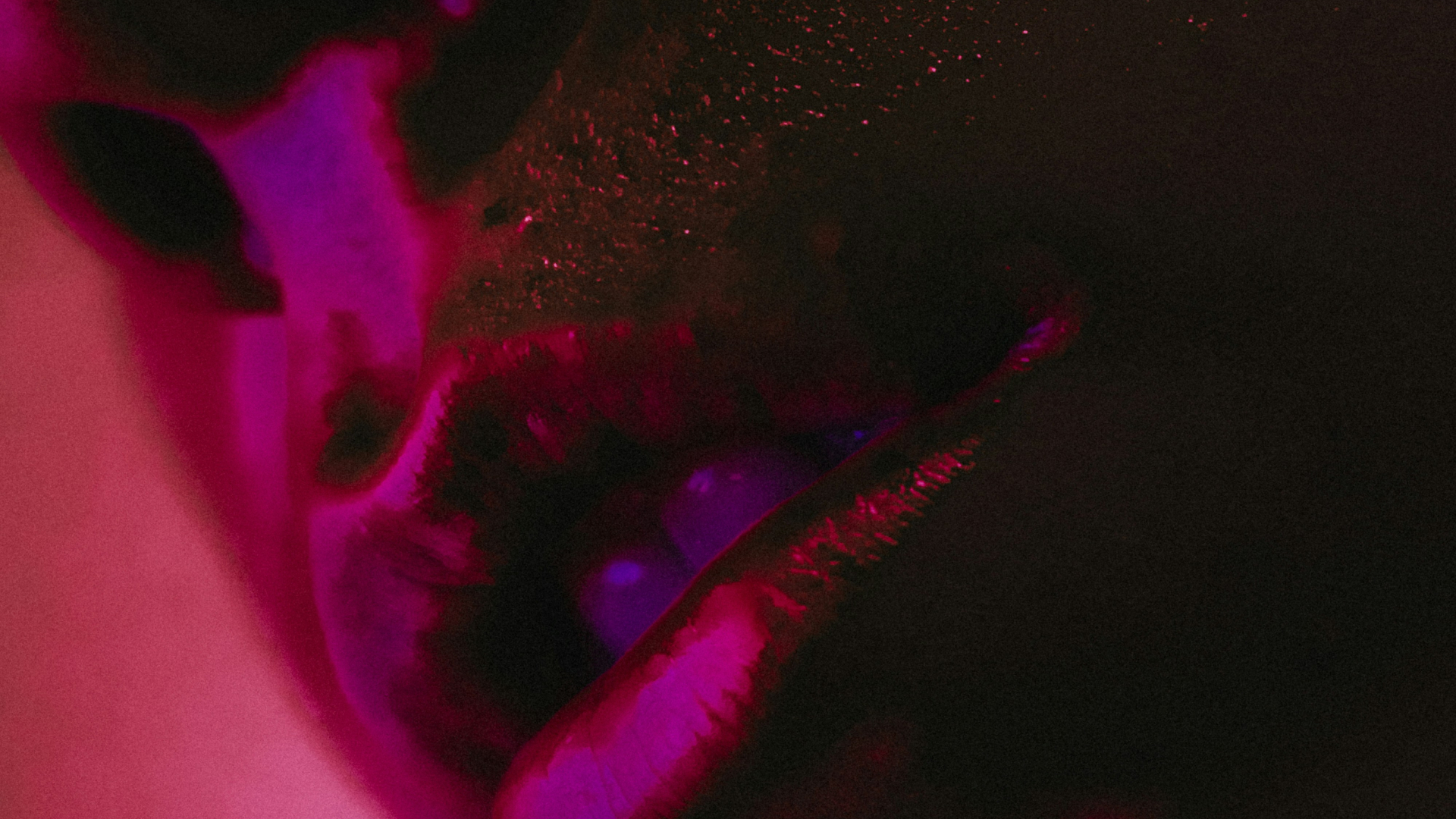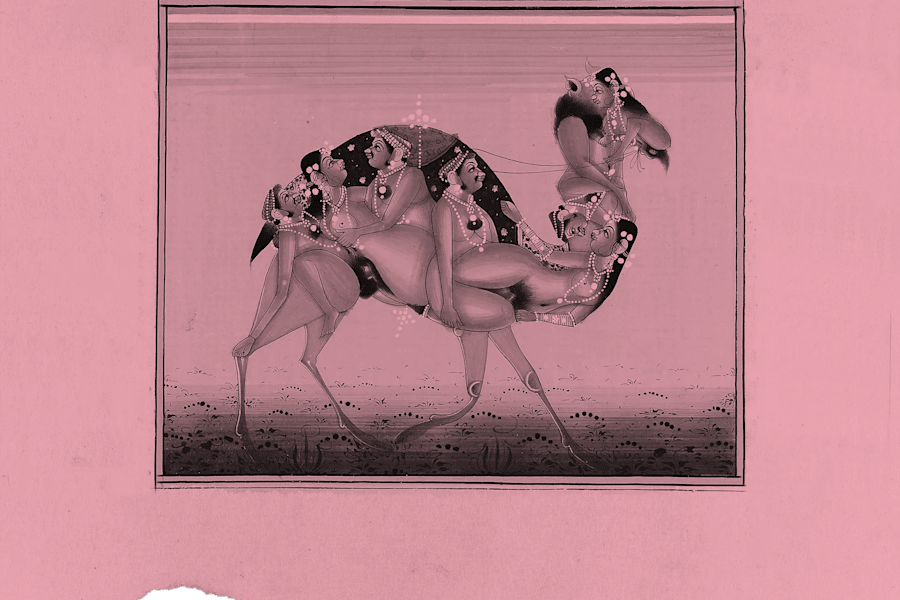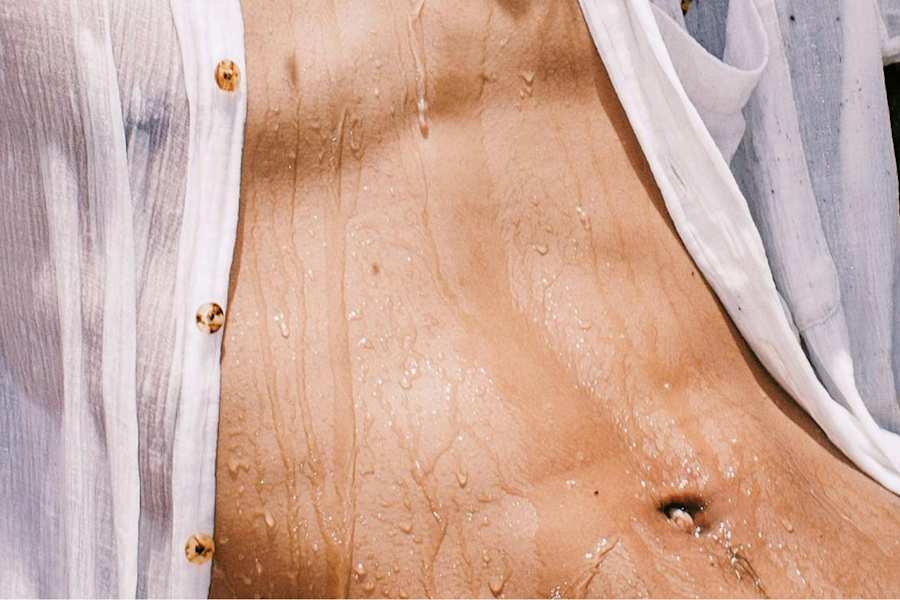
What does it feel like to be a woman, to be a femme in this moment? We surveyed the Feeld community and the consensus is: it’s complicated.
How are the women and femmes feeling? No need to guess—we asked directly in a survey to our Feeld community. As we consider the position women and femmes occupy in the world this Women’s History Month, we mulled over what it means to be femme, discussing gender with others, and how gender identity shows up in romantic connections.
What do you think when you hear the word “woman?"
“Someone who’s probably had to develop a lot of strength and resilience and community spirit.”
“A force.”
“Mother, daughter, sister, bitch. Women can be any person who identifies as a woman—including cis or trans women.”
“When I hear or read ‘woman’ I think: LIFE. The most powerful of all, the reason all things exist, beauty, wisdom, awareness, empathetic, ever changing and growing.”
“Powerful, life givers, soft, strong, and able to take whatever the world throws at us. We fight for each other and ourselves no matter what.”
How do you define “femme” in the context of gender? How do you define it in the context of a person’s experience in the world?
“It is up to each person to define this for themselves.”
“I see being femme as a playful engagement with socially and culturally constructed ideas and practices. It’s messy, and sometimes hard.”
“In the context of gender it means freedom and range. Creativity and playfulness. Femmes have more fun because we have more options, more range—both in terms of aesthetic but also in how we move through the wild and express ourselves. Femmes who express themselves with an element of gender fuckery or fluidity are often using their bodies for radical expression. I love the way our mere existence in the world can signify a fuck you to patriarchy.”
“Mother.”
“Femininity is a social construct. It’s widely considered to include things like long hair, makeup, softness.”
How does your experience of your gender align with other people you know who share it? How does it differ?
“It’s fairly aligned… some women are much more feminine than me and that makes me feel a little shame for not making more of an effort. Some women are less feminine than me and I sometimes feel shame for having nails and make-up done, as if I’m selling out to the industrial beauty complex.”
“Sadly mine isn't nice, people see a pretty face and expect more than I'm willing to give.”
“Unfortunately gender binaries are deeply rooted in oppressive systems; I tend to gravitate toward those with expansive acceptance.”
“I went to an all-girls college, which allowed me to discover myself without the context of a male influence. This experience allowed me to find strength as a young adult, when society and others were already trying to pull me down to ‘my place.’ My context and growth as a woman is unfortunately different from many others'.”
“I am perplexed by films like Babygirl and The Substance. These movies are supposed to be for me but I am never that woman who wants to look hot for a shrimp dick or one that loses her grip over an intern. Rather, I am the intern with [an] affinity for training animals, who also doesn’t care how old or ugly she looks as long as she gets to be surrounded by magic and beauty. I am surprised by the surprise men feel when I present as the desiring subject.”
“Some people are a**holes, some people don’t respect the gender I align with; I love being female and a woman but other people see it as a weakness and underestimate me.”
What is your relationship like with other women and femmes?
“Biggest cheerleaders.”
“My relationship with other women was fraught in the past, for one reason or another, but lately I have had nothing but positive encounters with other women. Women in this generation seem to lift each other up, love one another, and respect each other for their own power. We have discussed our positive traits and skills and reinforced the ability to achieve our goals! I have loved my encounters with other women. Very rarely have I had a negative encounter with other women and when I do, it is unrelated to gender.”
“Some platonic, some flirty, some intense.”
“I am bisexual. I adore women romantically and platonically.”
“Pure love. For a long time I was not attracted to femmes and only dated mascs, but had many platonic friendships with femmes and women. Recently I started dating trans women and trans feminine individuals and so now I’m also finding sexual attraction towards femmes, which is a nice evolution for me.”
What sort of conversations do you have with other people about your gender? Or about the concept of femininity?
“I find that a lot of conversations I have with men that are directly about our differing genders consist of me trying to illuminate and educate about women's experiences and difficulties. Sometimes these conversations go well. Sometimes I’m met with resistance, and, in the moment, I curse myself for not having more facts and figures to back up my argument.”
“All sorts of topics. We need to educate people on what it means to be a woman, the systematic oppression, the assigned gender roles, and how it's affecting others.”
“I tend to lack confidence as a woman and don’t always value myself as much as I should. I like being reassured and encouraged by other women of my worth.”
“This isn’t very Women’s History Month of me but most conversations about femininity I have are about the negatives. The way I’m treated, perceived, the way men treat women. The experiences of trans women and how it’s weaponized against them, to ‘protect’ cis women. The very idea that women are things that need to be protected. It’s patronizing and aggravating and exhausting.”
“I’m comfortable in my skin so most conversations only happen if someone has a difference in that comfort. And I’m spoiled [as] I surrounded myself with people who don’t subscribe to gender roles generally, so it’s nice.”
“As an older woman from an older generation, I have needed these conversations to grow and become more emotionally intelligent. We have discussed how femininity comes in SO many different forms. That femininity isn't just for women. It's for everyone and that's amazing, because everyone deserves to feel the sexual empowerment of femininity and everything else that it brings! In my days it was negative for anyone besides women to be feminine. Today it's a positive thing and I have never been more excited than I am over the thought that everyone gets to enjoy the feeling of feminine energy with me!”
What are some ways you feel your gender identity as you date and explore connections?
“I think about gender less than I think about polarity when I date. A lot of men I’m drawn to as a cis female are progressive and feminist and too similar to me to really cultivate a lasting spark. I run into the same issue with any women I date… there is an energy that creates polarity with [my energy] that isn’t encapsulated by gender along consistent lines.”
“I love being a woman, but dating sometimes is hard. Ghosting, being replaceable, shapeshifting for men, making men feel comfortable even though they are inadequate even when texting. Girl, it’s exhausting🤣”
“I see it in how I get dressed up and nice for [an] occasion. I also see it in the fear of the expectations the other party has for me. I use the bare minimum, i.e. paying for my coffee and not asking for more, as a means of judging how they may treat me later.”
“I enjoy someone being able to bring out the best in me. This also means that, depending on our chemistry, some of the deeper layers of my gender identity are brought to the surface for me and my partner to enjoy.”
“That I float naturally between more feminine to more masculine according to how masculine/feminine the other person is. If my partner is more feminine, I kind of balance [that with] my masculine part.”


